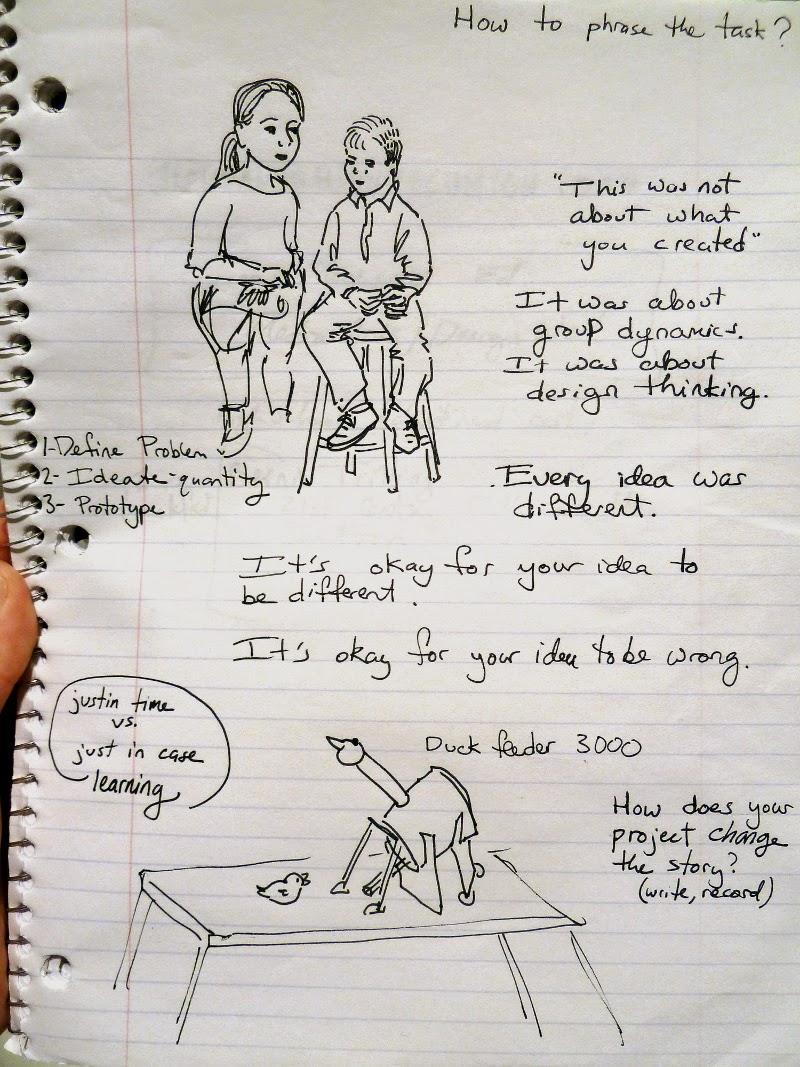One of my first stops back in the US was the Deeper Learning conference at High Tech High in San Diego, California. High Tech High is a leader in project-based learning, and the conference brought together over 500 teachers and education professionals brimming with ideas and questions for innovating in education. This made for fascinating sessions which instigated even deeper conversations during breaks and meals. I filled my brain for three days.
I attended a Deep Dive called Thinking BIG With Kids Who Are Small: A Deep Dive into Engineering and Literacy for All Ages facilitated by Stacey Lopaz of New Tech Network. We read Make Way For Ducklings and worked in groups to identify problems the ducks faced and engineer solutions to a problem.
Here are some of the fellow attendees, as well as some of the fantastic contraptions they invented. These were quick prototypes made using classroom materials, and anything else we could find.
One of the best elements of the session was that Stacey, until recently, a High Tech High teacher, had several of her former students in attendance.
These students showcased their confidence in talking in front of a group and their skill in asking challenging questions. I was introduced to the critique process most thoroughly in college, but these 5th graders had no problem asking useful and respectful questions to help us think deeply about how we could best accomplish our goals.
We covered so much in our 3 hours, but it wasn't until the next morning that I had my biggest discovery.
There, in a puddle in the middle of the road, were Mr and Mrs Mallard, straight from the pages of the picture book My mind pounded: ducks need water, and the water is in the road! Where is a better home for them? How will they cross the street? How do we help them get to a better home? Not only were the story's characters real to me, but their problems as well. A visit to a small, beleaguered urban wetland could be fascinating to students within this context. There would be all the more challenges for these young engineers to try to solve--and all the more context and connection to bring back to the story.
Whether I'm teaching art or another subject, I believe that making connections across disciplines and subjects gives context to our learning. We combined reading, comprehension, engineering, making skills, teamwork, problem solving, ecology and zoology. It was all held together with a glue of empathy: How do we help these ducks?


